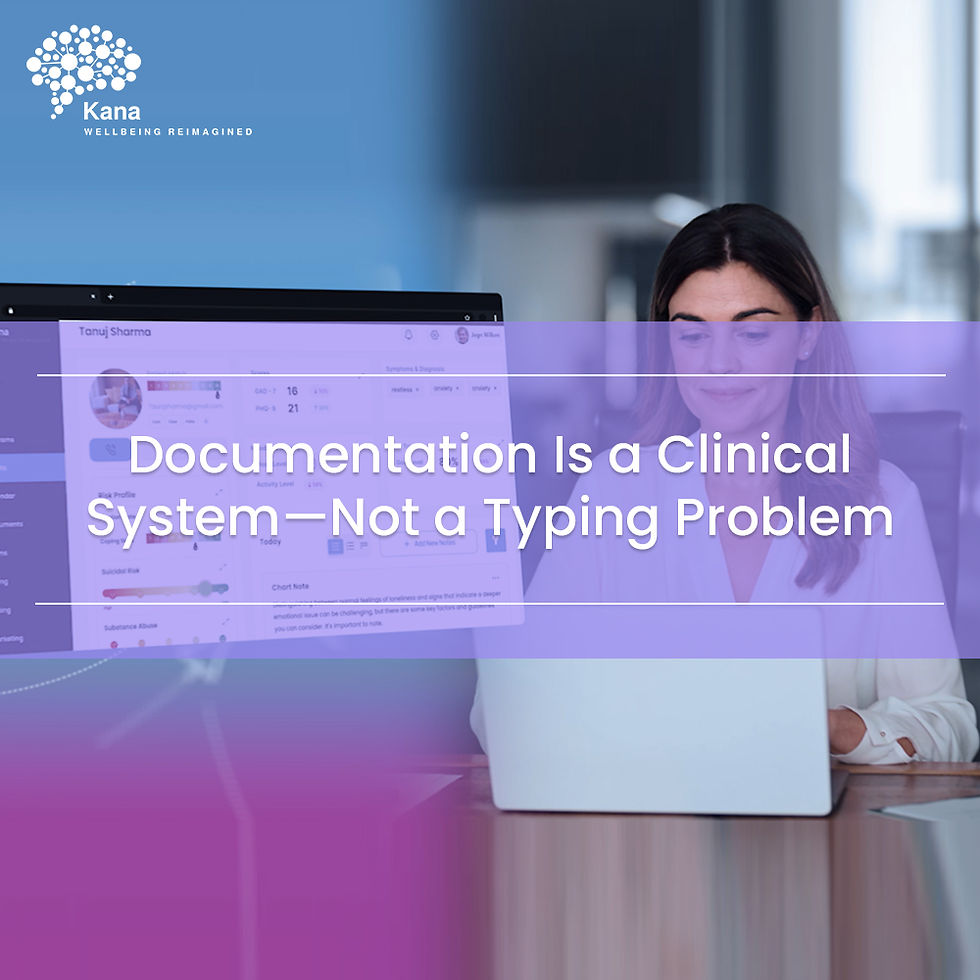The Role of AI in Addressing Mental Health Workforce Shortages
- emailvishesh
- Mar 1, 2025
- 3 min read
The global mental health crisis is deeply intertwined with a critical shortage of mental health professionals. According to the World Health Organization (WHO), there are only 13 mental health workers per 100,000 people worldwide, with much lower availability in low- and middle-income countries (LMICs). This shortage leaves millions without access to essential care.

The consequences are profound: 1 in 8 people globally experiences a mental health condition, yet timely, affordable care remains out of reach for many. Factors like geographical barriers, stigma, and clinician burnout only exacerbate the problem.
Fortunately, Artificial Intelligence (AI) is emerging as a transformative solution to bridge these gaps, empowering providers and patients through scalable, efficient care models.
How AI Bridges the Gap in Mental Health Services
1. Augmenting Workforce Efficiency
AI helps reduce the administrative burden on therapists by automating repetitive tasks, such as session documentation, appointment scheduling, and treatment plan creation.
Outcome: Therapists have more time to dedicate to direct patient care, increasing the overall efficiency of the system.
Example in Action: Kana Health's AI-powered tools enable therapists to streamline workflows, ensuring they can focus on what matters most—delivering personalized care.
2. Early Detection of Mental Health Issues
AI analyzes large datasets, such as medical records and behavioral patterns, to identify early signs of mental health conditions.
Real-World Impact: By flagging high-risk individuals early, AI allows for timely interventions, reducing the severity of untreated conditions.
Supportive Insight: Studies show that predictive AI models can analyze patient language and behavior patterns, offering early warning signs for conditions like depression and anxiety.
3. Expanding Reach to Underserved Communities
Digital tools powered by AI, including telehealth platforms and chat-based interventions, enable mental health services to reach populations with limited access to in-person care.
Innovative Approach: AI-driven platforms deliver culturally sensitive and multilingual support, breaking barriers in areas with diverse demographics.
4. Personalizing Mental Health Care
AI empowers therapists with data-driven insights to tailor treatment plans for individual needs. By analyzing patient history and response patterns, AI can suggest evidence-based interventions that align with a patient’s unique circumstances.
Example: Kana Health’s tools provide therapists with real-time data on patient progress, enabling adjustments to treatment strategies that improve outcomes.
Addressing Barriers to AI Adoption in Mental Health
1. Ensuring Ethical Use
There are valid concerns about biases in AI models and data privacy. To address this:
Robust encryption and anonymization protocols must safeguard patient information.
AI models need to be trained on diverse datasets to ensure equitable care across demographic groups.
2. Maintaining Human Oversight
AI is designed to augment, not replace, human therapists. Clinicians play a critical role in interpreting AI-driven insights and providing compassionate care.
3. Tackling Resistance to Change
Building trust among therapists and patients is essential for successful AI adoption. Transparent communication about the benefits and limitations of AI can foster acceptance.
The Future of AI in Mental Health
AI offers transformative potential for mental health care by:
Reducing Burnout: Automating administrative tasks frees clinicians from time-consuming paperwork.
Improving Access: Telehealth platforms powered by AI reach remote and underserved communities.
Enhancing Outcomes: Data-driven insights empower therapists to deliver personalized, effective care.
By integrating AI solutions into mental health care systems, we can address workforce shortages, expand access, and improve outcomes for patients worldwide. The future of mental health care lies in harnessing technology to create sustainable, equitable, and efficient systems.
Conclusion
AI represents a vital tool in addressing the global mental health crisis. By streamlining operations, enabling early detection, and enhancing the reach of services, AI bridges critical gaps in care delivery. As we advance, the ethical and responsible implementation of AI, in partnership with skilled clinicians, will redefine mental health care for generations to come.
References:
World Health Organization (WHO), Mental Health Atlas 2022.
American Psychological Association, 2023.
“Health Care Leaders: AI Needed to Combat Workforce Challenges,” AOL, 2024.















Comments